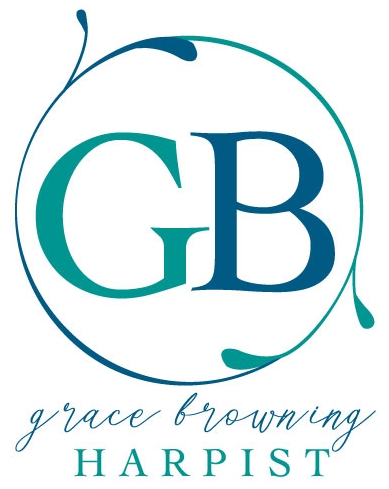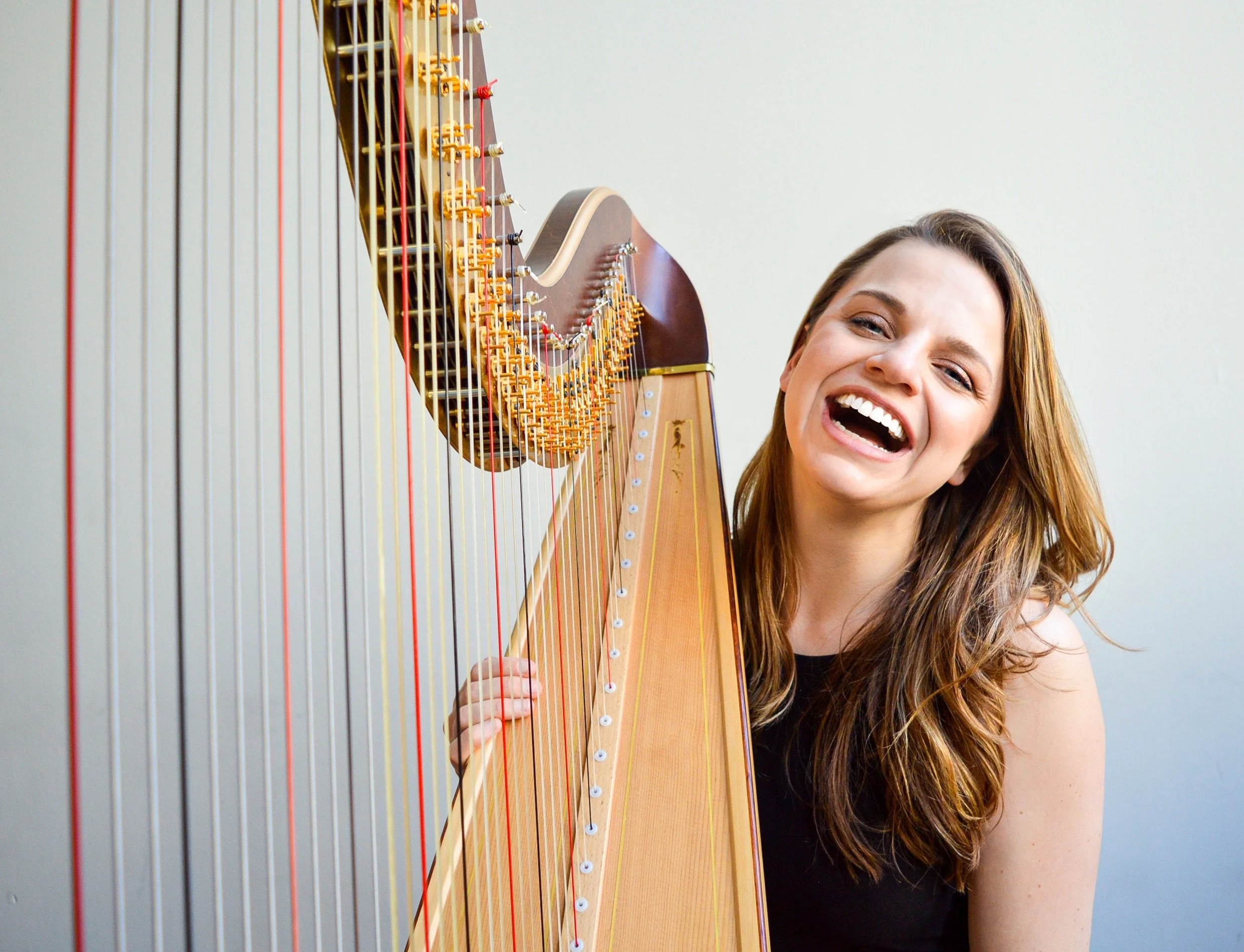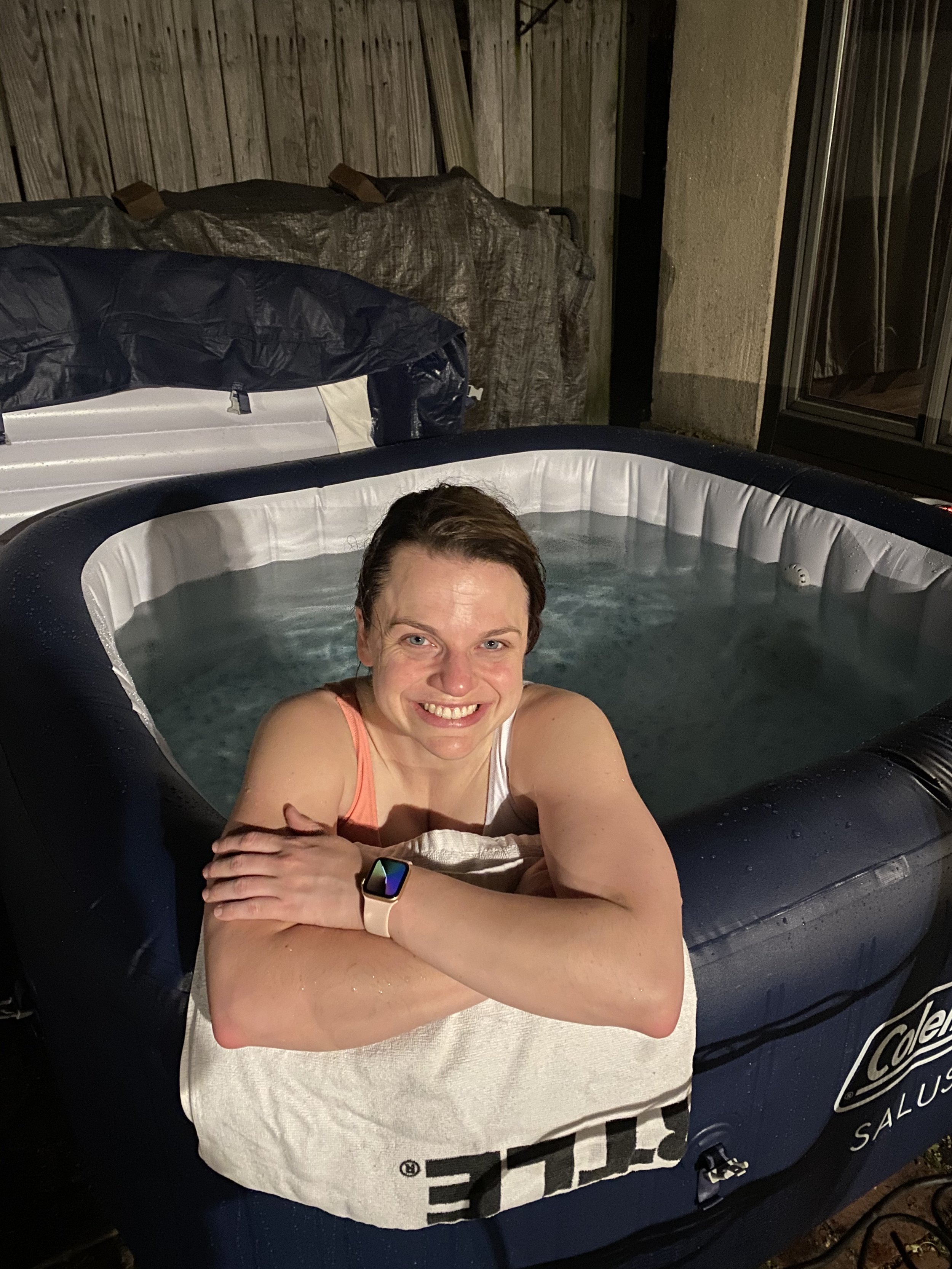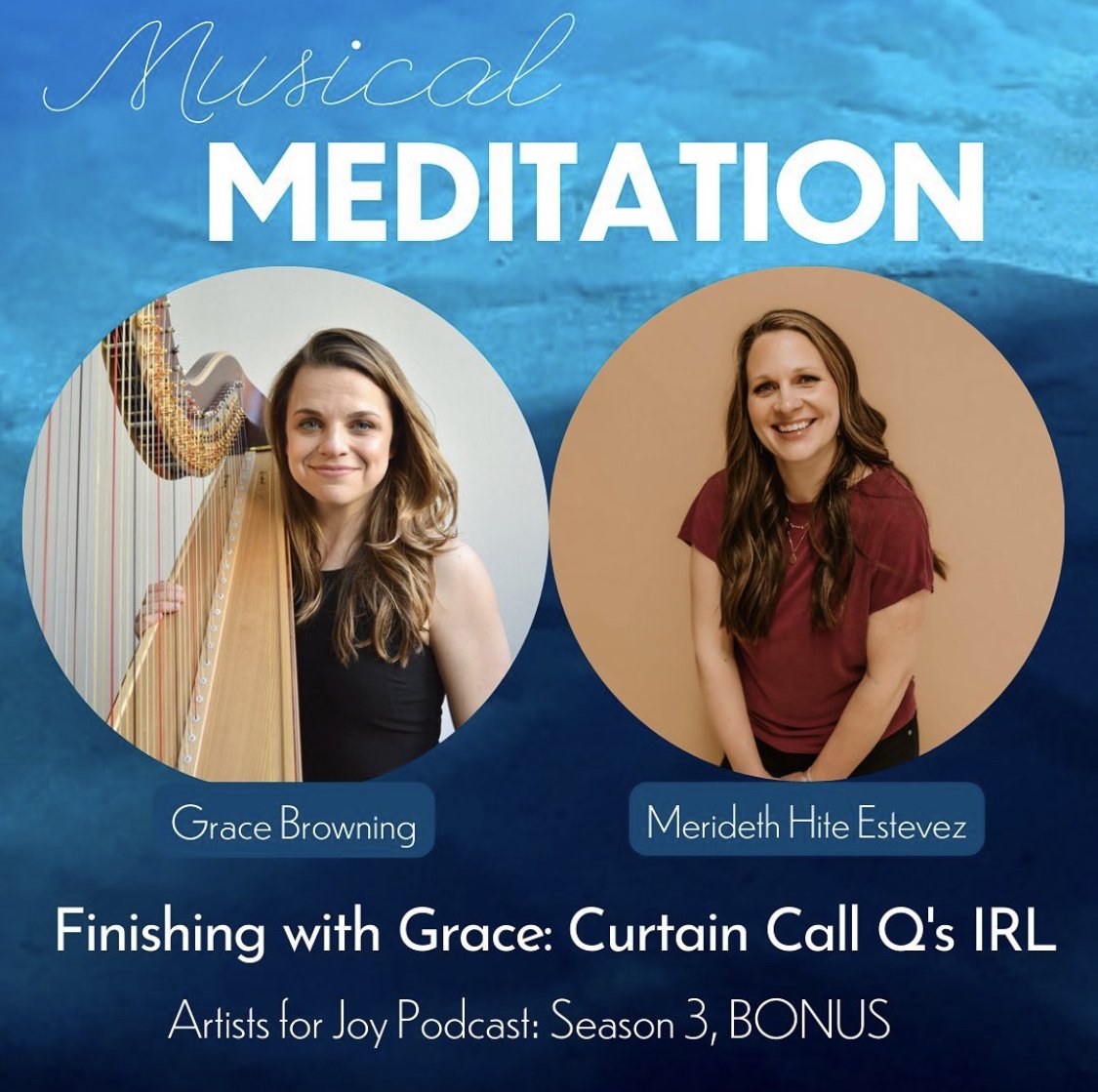It's over...now what?!
/An Exploration of Post-Concert Depression
Last month, I had the incredible experience of performing Mozart’s ONLY concerto for harp (and flute!) It was epic – musically, emotionally, everything - to finally perform this solo that I’d spent over a decade practicing, and to play it with my beloved orchestra. In spite of my usual performance anxiety and persistent inner critic, I was able to find myself in a rare state of total immersion in the music…(like: hello, who ‘dis?) Of course, it was by no means perfect, but I actually, truly had fun. Afterwards, my family and friends and I enjoyed a celebratory post-concert dinner and I spent the evening basking in the afterglow. If you’ve ever seen the movie Groundhog Day, THIS is the day I would absolutely repeat over and over again, take or leave Bill Murray.
But the next day hit me like an emotional and energetic hangover: I was called to jury duty (oh, the irony!) feeling groggy AF and reeling from such an epic high the day before. Of course I expected this to some degree: what goes up must come down! But this time, I found myself feeling aimless all week: almost listless, having trouble getting out of bed or finding a reason to sit down behind my harp. After getting dismissed from jury duty (thank you, pregnancy), I went about performing my usual, not-so-spectacular errands, teaching lessons, and attending meetings in between napping, eating cookie dough, and questioning my musical existence: what’s next? Is this it? How could I top this? Am I doing enough to diversify my career? Et cetera, et cetera…
At a certain point, I started to recognize some of my symptoms as depressive and started wondering if I wasn’t so alone in experiencing the ups and downs of performance. A quick google search of the term “post concert depression” led me down a rabbit hole that I didn’t even know existed. Urban Dictionary definitions to legit therapy articles on post-concert depression (henceforth referred to as PCD) showed me that there was quite a LOT of discussion about this topic, but almost entirely from the perspective of the audience/fans, rather than the performers themselves. So I took to instagram and started conducting my own research among my followers, and the data I found was FASCINATING:
PCD POLL: the “who” and the “why”
First, the 39 folks who responded to this survey were all musicians ranging from instrumentalists to radio hosts to conductors; some students, some professionals, and some adult amateurs. Second, nearly half (49%) of the respondents shared that they experience post-concert depression “all the time”, while 44% voted for “sometimes, it depends”, in contrast with the 8% who selected “not really…”. Interestingly, many respondents had questions of their own, unsure of why or how they felt a certain way, which is telling all on its own. It’s also important to note that many respondents noticed they feel PCD not only after a performance, but even after a major recording session, premiere, or any event in which they “gave their all” – meaning that this experience is by no means exclusive to performing.
In response to the question, “what are your symptoms?”, followers shared that they experience everything from physical fatigue, sadness/mourning, aimlessness/listlessness (what do I do with myself?), and fear (what if it never happens again?) – all feelings that I’d experienced personally. And for those who responded “sometimes, it depends”, I was curious to know why they believed they did or did not experience PCD. In a follow-up question, they said it depended on with whom they shared the experience, how much time they put into it, how far off their next performance was, and finally, how well the performance went. What’s interesting is that a great or sub-par performance can both result in PCD, either by amplifying the height of the experience or by instilling a sense of regret and disappointment, respectively.
THE COMEBACK:
One of the most helpful takeaways from this survey was learning how people cope with PCD. Many emphasized the importance of celebrating the performance or event no matter how it goes. In taking close to 15 auditions in my career, I learned and practiced the importance of a predetermined reward for self - regardless of the outcome - sometimes as simple as a dinner at my favorite restaurant, or time/budget-permitting, perhaps an investment in something bigger. For example, in advance of the RPO audition, I told myself I could get a hot tub: one that would either adorn my back porch in Dallas or serve as a necessity in the very cold Rochester winters. (although it took me a few years to make this happen, I am now the proud owner of this inflatable hot tub!)
Other coping mechanisms include physical movement – taking time to be in your body and to process your emotions somatically – (yoga is great for this one!) Many mentioned celebrating with others or being social, while some preferred time alone and reflection in solitude, reflecting the importance of extroverted or introverted self-awareness - (sometimes, I need both). Another common practice is diving into something new, finding pleasant distraction, or looking forward to the next event. For me, I started looking at my weekly RPO rehearsals differently – taking more time to listen to and research the music before the first rehearsal, listening with presence, and practicing gratitude during long tacets or rests. Finally, one respondent mentioned the importance of cultivating acceptance in advance of the performance – acknowledging the cycle and understanding it’s simply a part of the equation. Preparing for the inevitable drop off of adrenaline is a game-changer, as it sets up the mental and emotional expectation and helps smooth the transition back into normality.
CONCLUSION:
A few days after the performance, I went to post some pictures and clips. It was cathartic, albeit slightly disappointing as I realized there is no media that could ever come close to fully capturing the experience that I had. And…that’s okay. Sometimes it’s hard to accept that time continues to pass unapologetically, almost militaristically, without concern for person, place, or thing. Reflecting on a year of many ups and downs – marriage, family illness, pregnancy, and severe bouts of anxiety - it’s kind of insane that life can take us from a state of elation to the doldrums in a matter of weeks or even days. Why is it that great moments FLY by, while challenging periods seem to drag on endlessly? Is there no middle ground?
At the end of the day, it’s really our relationship with ourselves that dictates how we process the high’s and low’s of life. It’s learning to relish the moments of bliss and soaking them up like a sponge, while acknowledging the hardships with grace and understanding that they’re only one part of the story. Accepting and even *expecting* the rollercoaster of life allows us to ride along as an experienced passenger, rather than as a victim of an unruly flight. Remembering that we are not alone in this process, weaving our multi-color thread into the loom of our shared existence, grows our capacity for compassion towards self and others, and connects us more deeply to our shared humanity.
BONUS: THE CURTAIN CALL
This week I spoke with oboist, coach, and former Juilliard colleague Meredith Hite Estevez, who hosts the podcast “Artists for Joy” in an episode called “Curtain Call: Finishing with Grace”. We covered so many beautiful topics in this conversation: navigating the ups and downs of performance, finding joy in the creative process (NOT the creative product), and exploring her favorite series of reflection questions she poses to her clients after a big performance. Try these out, and see how they resonate with you after your next big event!
CELEBRATE: what went well? What did you enjoy? What were the high points?
GRIEVE: what do you miss? What could have gone better? What would you have changed?
NOTICE: where did you notice a connection with something larger than yourself? Were there moments of synchronicity, spirituality, or “magic”?
HOPE: what are you hoping for for anyone who heard that concert? What do you hope for as you move forward?
Listen to the whole episode here, including a snippet of the Mozart performance!
Happy musicking, friends, and may you experience peace in all cycles of life!




